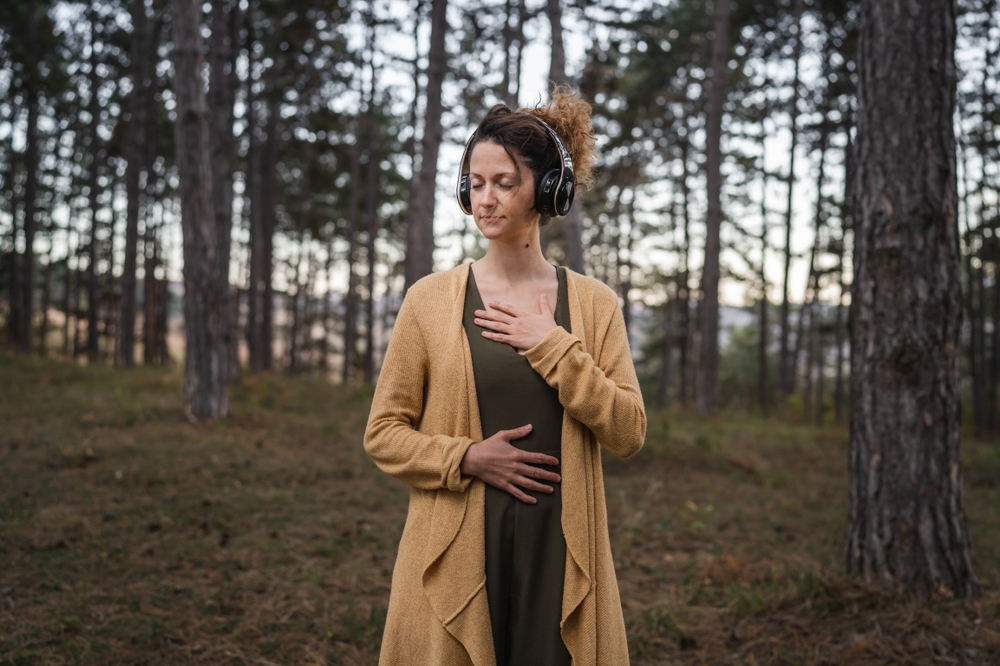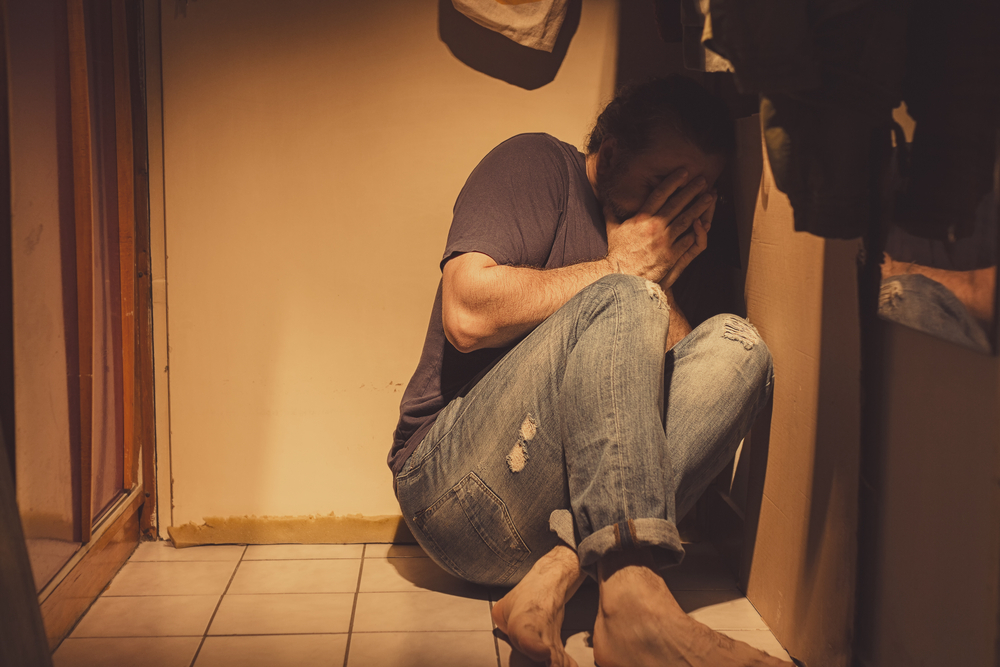Not having friends as a kid isn’t just a sad childhood chapter—it’s a developmental gap that shapes your entire emotional blueprint. The playground isn’t just where kids bond; it’s where they learn social cues, practice vulnerability, and develop a sense of belonging. So if you spent your formative years on the outside looking in, the impact doesn’t disappear just because you’ve grown up.
Adulthood may bring new relationships, but those early experiences still echo in your nervous system. You might crave closeness but fear it, show up too much or disappear entirely, or constantly question your worth in the room. These struggles aren’t signs that you’re broken—they’re signs you’re still navigating life without a map you were never given.
1. You Struggle To Believe People Genuinely Like You

Even when someone shows up for you, compliments you, or invites you in, there’s a voice that whispers, “They’re just being polite.” You second-guess every kind word, every hug, every plan made. Deep down, you still believe you’re the outsider and are overcome by doubt according to Psychology Today.
That kind of emotional doubt doesn’t come from insecurity—it comes from lack of early evidence. When you’ve never been consistently chosen, it’s hard to trust that you are now. Love feels real, but temporary.
2. You Feel Emotionally Behind In Friendships

You watch other adults maintain ten-year friendships, navigate group dynamics, and know how to comfort each other with ease. Meanwhile, you’re still figuring out how much to text, when to open up, or how to handle conflict without disappearing. It feels like everyone else got a manual you missed.
That “behind” feeling isn’t your fault—it’s a lack of exposure, not a lack of worth. You weren’t broken as a kid; you just didn’t get the reps. But emotional fluency can still be learned.
3. You Overanalyze Everything You Say And Do

After every conversation, you replay it in your head like a game tape. Did you talk too much? Did you seem weird? Were they bored? The self-surveillance never turns off but there are ways to overcome it according to this article in Oprah Daily.
When you grow up friendless, you learn that social rejection can be subtle and sudden. So now you try to spot it before it happens. But living in analysis mode keeps you emotionally exhausted and distant.
4. You Crave Deep Connection But Feel Unworthy Of It

You want someone who really sees you—but when it starts to happen, you panic. It feels too good, too vulnerable, too risky. So you pull back, self-sabotage, or convince yourself they’ll leave.
This push-pull dynamic isn’t about drama—it’s about protection. When you’ve been emotionally invisible, being emotionally seen feels dangerous. But healing begins when you let closeness feel safe.
5. You Feel More Comfortable Alone

Solitude became your comfort zone because it was your only zone but it’s a paradox according to Science Direct. You learned to rely on yourself, to soothe yourself, to avoid the sting of exclusion by preemptively isolating. So even now, alone feels familiar—even when it’s lonely.
It’s not that you don’t want people. It’s that you’ve learned not to need them. And breaking that belief takes more than just being around others—it takes emotional risk.
6. You Always Expect Rejection

A late reply, a rescheduled plan, a quiet moment—and suddenly, you’re spiraling. You assume you said something wrong, that they’re pulling away, that you were never really wanted. It’s not logic—it’s emotional muscle memory.
This expectation isn’t dramatic—it’s protective. You’re trying to prepare for the letdown that once felt inevitable. But that old script doesn’t have to run your present.
7. You’re Scared To Set Boundaries

You want to say no, take space, or ask for what you need—but your body freezes. The fear of being “too much” or getting cut off is considered an anxiety disorder according to The Mayo Clinic. So you abandon your needs to preserve the relationship.
Growing up friendless teaches you that belonging is fragile and conditional. But real connection can hold your truth—not just your compliance. Boundaries don’t push people away; they reveal who’s safe enough to stay.
8. You Struggle To Handle Conflict In Relationships

Disagreement feels like disaster. A single tense moment can send you into panic mode, convinced everything’s over. You either shut down completely or explode from emotional overload.
Conflict isn’t dangerous—it’s normal. But if you never practiced it as a kid, your adult relationships can feel terrifyingly high-stakes. Learning to stay present in disagreement is a radical act of reparenting.
9. You Overattach Quickly—Then Feel Ashamed About It

When someone shows kindness, you light up. You want to tell them everything, be their favorite, never leave their side. But soon, you feel exposed, needy, or too intense—and the shame kicks in.
This intensity doesn’t make you clingy—it makes you human. You’re responding to scarcity with urgency. Compassion means giving yourself permission to need without apology.
10. You Gravitate Toward Emotionally Unavailable People

People who are distant, cold, or inconsistent somehow feel familiar. You mistake unpredictability for chemistry, aloofness for mystery. You keep trying to earn love instead of receiving it freely.
This is a repetition of early emotional patterns. When you’re used to being overlooked, love has to feel like a chase. But healthy connection doesn’t make you prove yourself—it makes you feel at peace.
11. You Feel Like An Impostor In Social Groups

Even when you’re invited in, part of you feels like a guest—like you’re just visiting the world of people who “belong.” You perform, scan for rejection, and wait for the moment they realize you don’t quite fit. It’s not insecurity—it’s emotional conditioning.
You spent so long on the margins, it’s hard to believe you’re not there anymore. But real belonging isn’t performance-based. You don’t have to earn your seat every time you show up.
12. You Struggle To Ask For Help Or Support

You assume you’re burdening people. You hesitate to send that “Can we talk?” text, even when you’re falling apart. You’ve internalized that being alone is safer than being a bother.
This isn’t pride—it’s survival. When you’ve never known consistent support, needing someone feels risky. But interdependence is not weakness—it’s emotional maturity.
13. You Constantly Wonder If Something Is Wrong With You

You still carry the childhood question: Why didn’t anyone choose me? It lingers in the quiet moments, in relationships, in success, in struggle. It becomes an invisible wound that whispers, You’re different—in the bad way.
But this isn’t a character flaw—it’s an emotional bruise that never got to heal. Your younger self didn’t need fixing; they needed friendship. And it’s not too late to become someone who gives that safety to yourself—and lets others in to share it.
Natasha is a seasoned lifestyle journalist and editor based in New York City. Originally from Sydney, during a stellar two-decade career, she has reported on the latest lifestyle news and trends for major media brands including Elle and Grazia.


